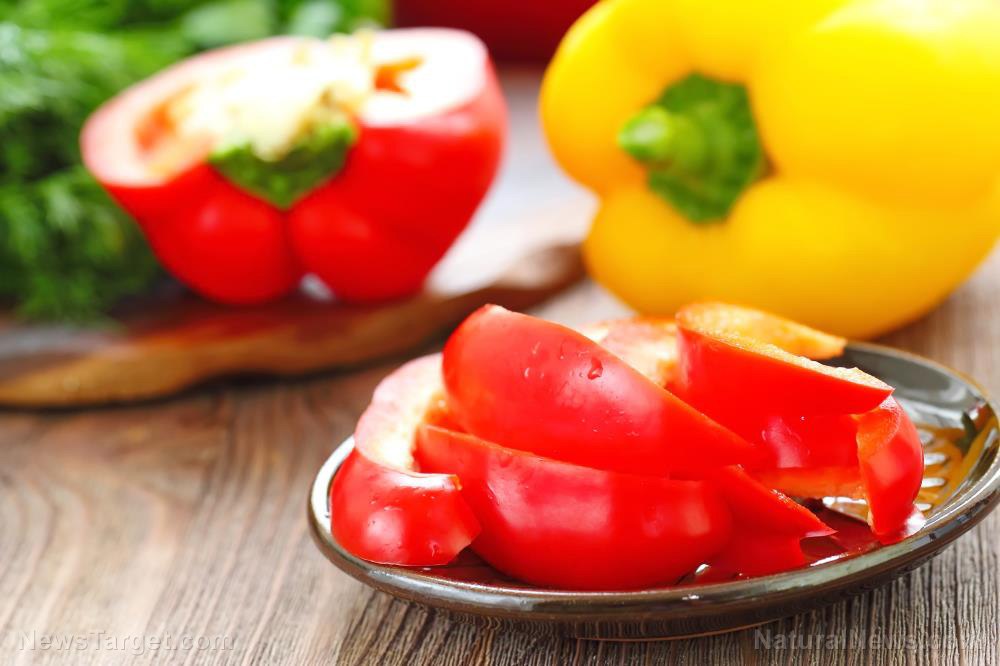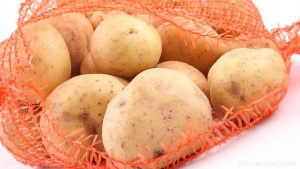
Advertisement
Nightshade vegetables may have an ominous-sounding name, but these nutritious veggies include staples like peppers, potatoes and peppers.
While most people can eat nightshades without any problem, you may need to avoid these vegetables if you have a food sensitivity or allergy.
Types of nightshade vegetables
Nightshades belong to a family of plants scientifically known as Solanaceae. This family includes thousands of species of fruits, vegetables, herbs, shrubs and weeds. Nightshades are unique because they all grow five-petal flowers and alternate leaves that grow in a staggered fashion on the stems.
Edible nightshades that may already be a regular part of your diet include:
- Bell peppers, hot peppers and sweet peppers
- Eggplants
- Potatoes (Excluding sweet potatoes)
- Spices that comes from peppers, like cayenne and paprika
- Tomatoes
- Tomatillos
Note that some nightshades are poisonous and should never be consumed, like tobacco and the belladonna plant or deadly nightshade.

Health benefits of edible nightshades
Edible nightshades are full of many vitamins and minerals. Listed below are nightshades that should be part of a balanced diet.
Chili peppers
Chili peppers contain capsaicin, the active component that gives peppers their heat.
Research suggests that supplementing with capsaicin powder can help relieve heartburn symptoms. Capsaicin can also help reduce calorie intake and promote weight loss efforts.
Eggplants
Eggplant is a natural source of dietary fiber, potassium, and vitamins B1, B6 and K. Findings from a 2019 study revealed that compounds in eggplant extracts can help prevent DNA damage and mutations that can cause cancer and other diseases.
Additionally, eggplant contains antioxidants that may offer cardioprotective benefits. Eggplant also contains a type of fiber that promotes bowel regularity.
Peppers (bell peppers)
Green, orange, purple, red and yellow bell peppers are rich in folic acid, potassium and vitamins A and C.
Bell peppers are also full of beneficial antioxidants that can help prevent diseases like cancer and heart disease.
Potatoes
There are different colored potatoes that offer many health benefits, but all of them are rich in dietary fiber, potassium and vitamins B6 and C.
Potatoes are chock-full of resistant starch that is good for digestion. Research suggests that this type of starch can also help prevent colon cancer.
Potatoe peels are full of nutrients that promote bone health like calcium, iron, magnesium, phosphorus and zinc.
Red and purple potatoes are rich in antioxidants like carotenoids which are believed to help prevent chronic diseases and inflammation. Studies also suggest that blue and purple potatoes can help reduce oxidative damage and inflammation.

Tomatoes
Tomatoes are rich in biotin, iron, potassium and zinc. Additionally, tomatoes are one of the best sources of lycopene, the antioxidant that helps reduce inflammation and conditions related to oxidative stress.
You can enhance your absorption of lycopene from tomatoes by cooking or stewing them and serving them with some healthy fat.
Tomatoes can boost heart health by lowering both your LDL (“bad”) cholesterol and blood pressure.
Are nightshades bad for you?
If edible nightshades are good for your overall health, how come some people say that you should avoid them?
According to Dr. Stephen Gundry, the physician behind the “Gundry Way” eating plan, nightshades are bad for your health because they can harm your digestive system. Gundry also warns that nightshades contain two “anti-nutrients”: Lectins and alkaloids.
Anti-nutrients can compete with nutrient absorption in the body.
Lectins
Lectins are proteins found in nightshade peels and edible seeds like cereal grains and legumes. Gundry warns that lectins are toxic and inflammatory. In addition, they are resistant to digestive enzymes, meaning it’s impossible to properly break down in the body.
As such, Gundry suggests that consuming a lot of lectins can cause major discomfort.
It’s true that excessive amounts of certain kinds of lectins can be bad for you. For example, hemagglutinin, one of the lectins found in kidney beans, can make you sick if you eat beans raw.
Research suggests that consuming large quantities of raw lectins can have adverse health effects, but lectins break down when processed or cooked. Unless you have a habit of eating kidney beans raw, you don’t have to worry about lectins.
Alkaloids
Alkaloids include capsaicin, nicotine and solanine. Gundry explained that some people may be unable to digest alkaloids and that they are linked to inflammation and joint pain.
Gundry concluded that some people with nightshade sensitivity may not realize it because it has symptoms similar to other conditions like:
- Acid reflux
- Arthritis
- Autoimmunity or chronic conditions
- Diarrhea
- Difficulty breathing (rare, but serious)
- Heartburn
- Irritable bowels
- Itching
- Joint pain
- Leaky gut
- Mouth swelling (rare, but serious)
- Nausea
- Nerve problems
- Swelling
Alkaloids are toxins that are dangerous to humans and animals when consumed in very large doses.
Vegetables contain the primary toxin is solanine and it’s found in high levels in certain foliage. Certain fruits also contain trace amounts of alkaloids. For the average adult, potentially life-threatening, toxic intakes of alkaloids would be around 400 mg.
However, nightshade vegetables usually contain between two and 13 mg of solanine each. This means you would have to eat over 35 raw eggplants to experience these negative side effects.
Gundry also claims that alkaloids cause joint pain and arthritis. To date, there are no scientific studies to prove these claims.
Considerations before consuming nightshades
While nightshades aren’t bad for you, you should still avoid them if you have food allergies or may be sensitive to certain kinds of nightshade veggies.
According to anecdotal reports, some people stopped experiencing painful inflammatory symptoms after they eliminate nightshades from their diet. It’s possible that some of them may have had food allergies, hence the adverse effects.
In rare cases, you may have an acute allergic reaction to nightshades. If this is the case for you, then avoid eating them altogether.
If you have an inflammatory bowel disease like Crohn’s disease or ulcerative colitis, you should also avoid nightshades as these conditions can cause intestinal permeability. According to several test tube and animal studies, intestinal permeability can be negatively impacted by the consumption of too many alkaloids in potatoes, capsaicin in peppers and fiber in tomatoes.

Substitutes for edible nightshades
If you decide to eliminate nightshades from your diet, substitute these veggies so you don’t miss out on the nutrients they provide.
- Eat more sweet potatoes, which are full of vitamin A. For dishes that require mashed white potatoes, use mashed cauliflower, parsnips, sweet potatoes, or turnips.
- Replace tomato sauce with pesto. For pasta-based dishes, use pumpkin- and squash-based sauces. For dishes that require the acidity of tomatoes, use strawberries or strawberry sauce.
- Celery and cucumbers have a different flavor profile but they can be used as a substitute for bell peppers. For cooked dishes that require the pepper flavor of red and green bell peppers, use radishes.
- Replace eggplants with portobello mushroom caps, especially if you’re cooking vegetarian and paleo dishes.
- If you need to replace nightshade-based sauces, use coconut aminos, fish sauce, oyster sauce, or Worcestershire sauce.
- Consume citrus fruits to boost your vitamin C intake.
- Eat more leafy greens vegetables like collard greens, kale and spinach to boost your intake of dietary fiber and various vitamins and minerals.
If you don’t have food allergies or sensitivities, incorporate nightshades into a balanced diet to reap their many health benefits.
Sources:
Advertisements







